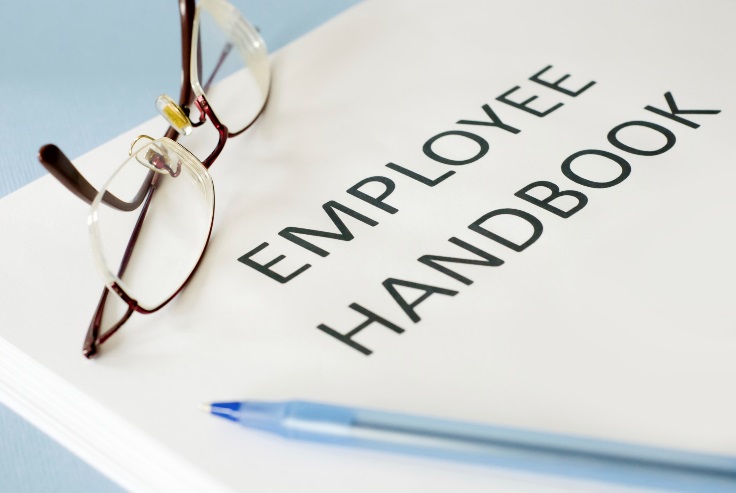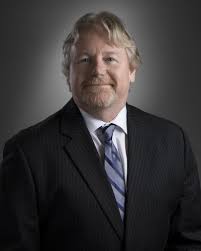Aesthetic physicians are realizing that their small medical practice is actually a small business, and like all businesses, employment laws can be a constant source of stress. Paul Edwards, CEO and Co-Founder of CEDR HR Solutions, which provides individually customized Employee Handbooks and HR support to healthcare offices across the United States, explains how these laws affect an aesthetic practice. CEDR HR Solutions specializes in helping medical practices and office managers safely navigate the complex and ever-changing employment law landscape, which can vary dramatically from state to state. Paul has over 25 years of management and human resource expertise. He is the author of the blog HR Base Camp (www.hrbasecamp.com) and speaks at conferences across the country. To learn more about CEDR HR Solutions go to www.cedrsolutions.com. For a FREE consult Click Here!
How long has CEDR been in operation and what exactly does it offer physicians?
I co-founded CEDR HR Solutions in the mid-2000’s along with Douglass Lodmell. For 16 years prior, I had owned several interrelated businesses in the live music and artist management industry. At any given time, I was managing 50 employees across those businesses, so I know first-hand the importance of employee standards compliance and employee morale building. Like many of the physicians that we now work with, I had employees, I had problems, and I needed to figure out solutions for them. Many of CEDR’s physician clients will attest that they are often operating in a trial-by-fire way, trying to figure things out as they go along—but, unfortunately, they are making very costly mistakes that are holding back their practices’ success. Until CEDR came along there was no defined and legally up-to-date Employee Handbook a physician could use in their practice, and now there is.

Are staff issues a real concern to physicians in the aesthetic industry?
Yes. Employee labor laws and staff protocols are generally not taught in medical school, or even in the MBA programs that some physicians also enter into. When a doctor finally earns their MD, nobody tells them that they are now going to become an employer for the next 30 years of their professional life. Most doctors come out of medical school not even knowing what the Department of Labor does or how it affects them. A doctor comes out of medical school ready to be a doctor. They generally know little, if anything, about state and federal laws, or that in places such as California they need to know about things as simple as how to apply staff meal and break period rules, and what to do when they’re having a misunderstanding with an employee about those things. In recent years, physicians are coming under fire more and more because, quite frankly, an employee’s ability to Google whether or not they are being treated properly underneath the law is simply a click away. Twenty years ago an employee didn’t have easy access to that sort of information. Personally, in more than a decade with CEDR, I’ve never met a doctor who would intentionally break a law, but I have met thousands of doctors who are unintentionally not following the letter of the state law, and have found themselves in trouble over that.
Is an informed employee beneficial to a practice?
Absolutely, so long as the practice is fully informed. If an employee knows more about labor laws than the practice manager and physician-owner, then the practice is in trouble! Recently I attended a CE course in San Francisco and as I got off the train, the first 500 feet or more of the station wall was plastered with advertisements for firms specializing in helping employees press charges against employers. Each advertisement included a list of all the ways California employers can get into trouble. Everything from fair pay to maternity leave and unfair dismissal were on the list, as well as a host of other potential violations. It’s a different world out there, and it is a world that CEDR was formed to address.
How can a physician protect their practice from staff problems?
It sounds simple, but an Employee Handbook is the first thing CEDR recommends every doctor possess. Some doctors may say, “Oh great. I already have one of those,” but the real question is how up-to-date and compliant is their Employee Handbook, if they do indeed have one. An Employee Handbook should ideally provide tools for an employer to address any potential staff issues. The Labor Board is almost always on the employee side, so any employer must have a thorough and complete understanding of their total rights and responsibilities under the law, as well as those of their employee(s), and that’s what makes it so challenging. If a doctor has the proper policies in place and has communicated them with their staff members, they are better able to protect themselves from future problems. Whereas, when they have an improper policy in place or no policy in place at all, then they run the risk of not knowing that they are out of compliance until it’s too late and somebody has put a letter of demand—or worse, a lawsuit—in front of them.
Why did CEDR HR choose to work in healthcare?
After I sold my business, I began work as an asset protection analyst for a law firm whose primary clients were doctors. My main responsibility was to discern how the doctors were holding their assets, personal savings, real estate and building ownership, investments, etc. and to determine the best way they could structure those different assets to better protect the practice, as well as the doctors’ own personal wealth. The company provided each practice with an Alternative Dispute Resolution Procedure package that was a 4-page document which forced employees into a process where they had to tell the doctor that there was a problem before they could file a lawsuit. In 2001, the Supreme Court ruled that employers could do this and while the Alternative Dispute Resolution Procedure package was a big hit and was effective at preventing frivolous lawsuits, it led to lots of questions being asked about labor law that the law firm was not equipped to handle, as they were not experts in HR and employment law. By this time, I had left the law firm and the owner came to me with his concerns, which led to the beginnings of CEDR HR Solutions. It was almost as though healthcare chose us, rather than the other way around. We didn’t immediately start an HR company, but spent about a year and a half of long, intense study and training, gathering the best resources and information available before CEDR actually opened for business.
Are medical doctors a target for employee lawsuits?
When we first began CEDR, one of the first things that we noticed was that private medical practices were big targets for law firms looking to increase their business. Lawyers don’t sue people that don’t have money—and for many, when they see the word “doctor” it implies “money,” especially in the arena of labor law. Seeing the word “doctor” in front of an employer’s name immediately gets lawyers’ attention, and the next thing you know there is a federal or state law that the practice hasn’t complied with, generally regarding something very insignificant, and now the doctor has a lawsuit because they have made some kind of minor error. Attorneys do not have to dig deep and find some unknown law nobody knows anything about in order to file suit; I’m talking about obvious things such as overtime policies, saying that an employee cannot discuss salary with other employees, break time policies, etc. Doctors have to comply with the letter of the law if they want to avoid becoming a target for an employee lawsuit.

How does CEDR work with a medical practice?
CEDR HR Solutions offers expert support for medical offices. We help practice owners, doctors, and managers protect and grow their businesses by lessening liability, preventing employee disputes, and making management easier. Our first step is to develop the practice’s Employee Handbook. I cannot state enough times the importance of this book. It is crucial, the backbone of the practice, and should not be an afterthought. Since our inception we have gained nationwide experience working with thousands of practices all across the country. We make sure that all of the practice policies are legal, we offer strong protection for the practice with our team of seasoned HR and employment law advisors and attorneys, and we help resolve employee disputes before they lead to lawsuits. Our Employee Handbooks are also fully customized so they meet the unique needs of each practice, and ensure compliance with state-specific and local laws. Then our CEDR Solution Center Membership offers unlimited support by HR, management and legal experts whenever a doctor needs it. Whatever the issue, from hiring, to coaching, and even safely dismissing an employee, the Solution Center offers one-on-one guidance or problem-solving with a focus on lowering risks. Updates and changes to policies are also taken care of by our HR Experts.
What are the typical staff issues affecting a medical practice?
Every practice is different and unique, and each geographical location is bound by state and local laws: an area CEDR understands exceptionally well. In aesthetics, there are some problems that we see regularly, such as embezzlement and stealing, but the bottom line is that employees are human beings and human issues and relationships are always changing. A doctor might rush to hire a new team member who for the first two months operates like a star employee and then, almost overnight, they become a “bad apple” and are ruining staff morale—and now the doctor wants to get rid of them, realizing that they were hired too fast. This type of scenario happens often, and the doctor is carrying the added stress of how to deal with this problem, rather than turn the situation over to an HR expert. Also, women are a driving force in the medical community and statistically dominate many positions, and when it comes to pregnancy or maternity leave, the practice must comply with the law as it relates to time off, etc. There are many other issues, too many to mention here, but the bottom line is that a doctor must provide their own safety net when it comes to employees, and that is what CEDR HR is here for. We have a team of experts that provide personalized HR support that addresses any and all staff issues in the medical practice.
Is it necessary for a practice to have its own HR Manager or Department?
Most of the medical practices I have come across would find it difficult to afford an $80-$100K-per-year qualified Human Resources Manager, and it would also not make financial sense to hire one when there are other more needed roles to be filled in the practice. At CEDR, we have created a remote HR support model where we are here on demand to back up and protect a medical practice, solve any employee-related issues and help with any legal questions. Our team of attorneys are problem-solvers who understand the law and can help with almost any labor issue. In addition, CEDR’s personalized Employee Handbook and support negates the need for an on-site HR Manager and is something a Practice Manager can use during the hiring (and firing) process. We are here to back up the owner or their designated proxy.
Can an Employee Handbook be used at more than one practice?
If the practice is owned by the same doctor, is in the same state and offers the same services, then yes. But if you are using an Employee Handbook that was originally created for another doctor, that could create major problems. I have known doctors who have told me that they are using an Employee Handbook that their colleague, another doctor, uses. Their colleague has “never had any issues” and they think that they won’t either so long as they have the book. The problem here is that the doctor is still most likely not completely up-to-date in their understanding of labor laws, therefore, the book they received from “a friend” might create more problems than it solves. Think of it as a virus waiting for the right conditions to act out. Every practice should have their own Employee Handbook that has been scrutinized for accuracy by legal professionals. The Employee Handbook should be like a shield to the practice and is there to protect, not to do further damage.
Ultimately, what can a doctor expect from CEDR?
The main purpose of CEDR is to provide protection to medical practices from disgruntled employees, and to help them operate within the means set forth by law. With the expert HR support we provide, a doctor should not have to pay a $10,000 retainer to an attorney to help sort through an employee issue—and that does not include the thousands of dollars in lost time for the doctor to have to deal with that issue. At CEDR, if there is ever an employee issue or claim, we want the other side to have to do all the work because we have made the practice practically impenetrable—because the policies set forth are legally compliant, and the way in which the practice deals with employee issues is right from the very beginning. So an Employee Handbook that a doctor has written themselves, has borrowed from a “friend”, or has downloaded from a template website, is what we call a $120,000 handbook—meaning that’s what it will quite likely cost you, in the long run. After all, the costs of an employee dispute begin with the initial retainer fee and lost time as mentioned previously, and can also possibly cost another $30,000-$60,000 in legal fees, plus a hefty pay-out if the doctor loses. That makes a non-compliant or unknown handbook not just worthless, but a very expensive lesson.
At CEDR, our Employee Handbook and Solutions Center experts not only save doctors thousands of dollars in time and resources, but ultimately help them do what they do best—be a doctor.
To learn more about CEDR or to follow Paul Edwards’ blog go to www.cedrsolutions.com. For a FREE consult CLICK HERE!

To listen to Paul Edward’s interview on Aesthetic Insider Radio CLICK HERE!

TO LEARN MORE ABOUT HOW CEDR HR SOLUTIONS CAN HELP YOUR PRACTICE, READ THESE ARTICLES!
“Can Employee Actions Outside of an Aesthetic Practice Cause Legal Problems?”
“Top Employee Issues That Cause Legal Problems”
“Employment Law For Cosmetic and Plastic Surgeons”
“Why Does An Aesthetic Practice Need An HR Expert?”
“The Secret to Effective Staff Management With Dr. Filiberto Rodriguez”

